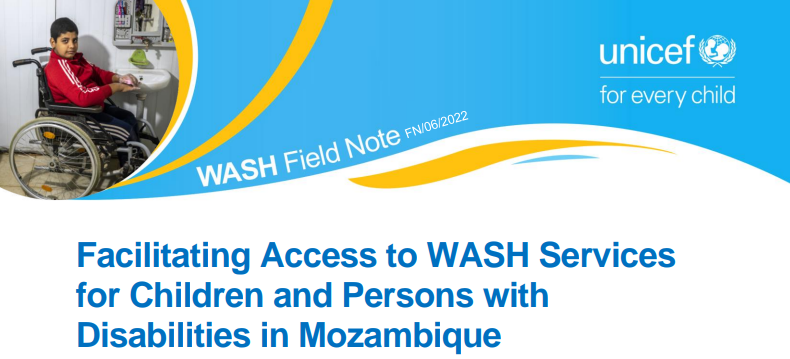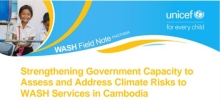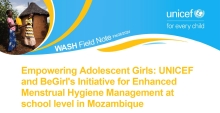Field Note: Facilitating Access to WASH Services for Children and Persons with Disabilities in Mozambique

This case study describes the experience of the UNICEF Mozambique Country Office in improving access to water, sanitation and hygiene (WASH) for children and persons with disabilities. The five projects/programmes described here involve interventions in development and humanitarian contexts: the first example covers the implementation of a water supply and sanitation programme in small towns between 2012 and 2018, including the NAMWASHi and AGUASANIii programmes; three other examples are related to the UNICEF response to the effects of Tropical Cyclone Idai in 2019; while the last covers the work of UNICEF in improving hygiene conditions and water and sanitation infrastructure in health-care facilities, especially in the context of the COVID-19 health crisis.
Ensuring that children and persons with disabilities have proper access to WASH infrastructure and that hygiene and health messages are transmitted and understood involved various activities, such as awareness-raising among a large range of stakeholders, consultations with children and persons with disabilities on the best solutions for them, adaptation of technologies, capacity-building of contractors and local artisans, and more.
Achieving a decent standard of living, including access to WASH services, is particularly challenging in the context of Mozambique, a country that is ranked 181 out of 189 countries in the 2020 Human Development Index, with 50 per cent of Mozambicans living in extreme poverty and 73 per cent experiencing multidimensional poverty,1 and where persons with disability are most likely to experience stigma, discrimination, low levels of education, barriers to participating in the labour market and limited access to specialized services and subsidies.
This case study includes lessons learnt through the implementation of the five projects/programmes that could help different stakeholders in the WASH sector, especially implementing partners, to implement solutions that are adapted and friendly to persons with disabilities.




